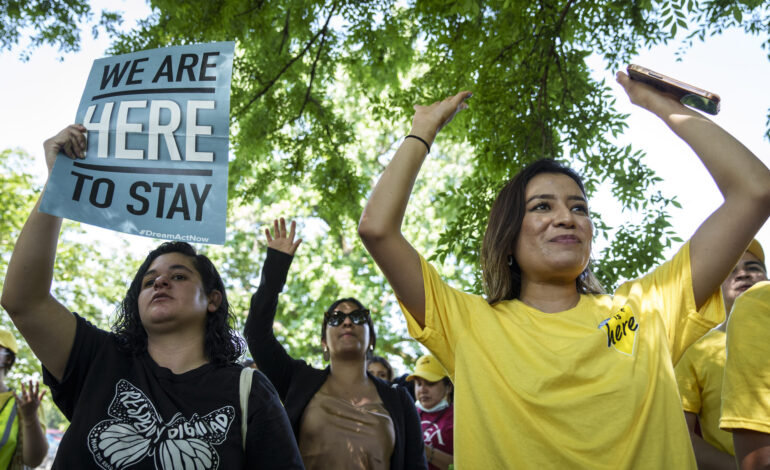DACA Applications Resume Amid Ongoing Legal Battles – Urgent Update

UPDATE: Immigration officials have just announced that DACA applications can resume, marking a significant turn in a protracted legal battle over the immigration program. After a four-year hiatus, individuals brought to the U.S. as children can once again apply for permits to live and work in the country.
However, Texas remains an outlier, as a court ruling continues to block work permits for DACA recipients while still recognizing their protection from deportation. This leaves many recipients in Texas unable to work, forcing them into the shadows despite having temporary permission to stay. This situation raises urgent concerns about the economic and social stability of affected families.
The DACA program, initiated by the Obama administration in 2012, was designed to provide temporary protection for immigrants who were illegally brought to the U.S. as children. Although there was an opportunity for Congress to make these protections permanent, political gridlock has left many in limbo. With over 500,000 immigrants enrolled in DACA, Texas hosts the second-largest group of recipients after California, highlighting the program’s broad impact.
Every two years, DACA recipients must reapply to renew their protections, a constant reminder of the precarious position they occupy within the U.S. legal system. Brownsville federal court recently saw another filing related to DACA, underscoring the fragility of the program and the ongoing struggle for a pathway to permanent residency.
The average age of DACA recipients is 31, with many now established as parents, taxpayers, and homeowners. What began as a fight for educational access has evolved into a battle for the ability to provide for families and secure livelihoods. According to U.S. Citizenship and Immigration Services, these individuals are deeply integrated into the fabric of American society.
Even former President Donald Trump, who attempted to dismantle the program, has acknowledged the necessity of a pathway to citizenship for DACA recipients. In 2018, there was a bipartisan effort in Congress to offer DACA recipients permanent legal status in exchange for stricter border security measures, but the political climate derailed this progress.
As the nation grapples with hyperpartisan politics, the failure to act on DACA when there was an opportunity has left many immigrants in a state of uncertainty. The emotional toll of living in legal limbo is immense, with families left to navigate an unpredictable future that could change with the next court ruling.
DACA recipients continue to hold onto hope for a resolution. Their resilience in the face of adversity serves as a poignant reminder of the human impact behind policy decisions. As lawmakers continue to debate immigration reform, the urgency to deliver a permanent solution has never been more critical.
Stay tuned for further updates as the situation develops.






